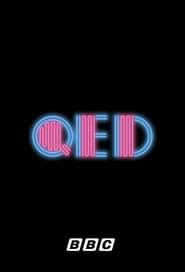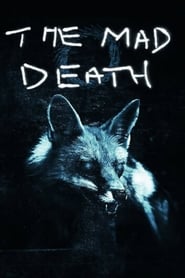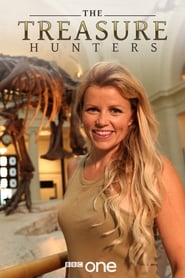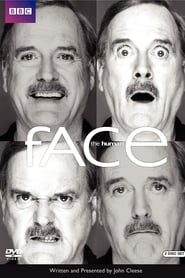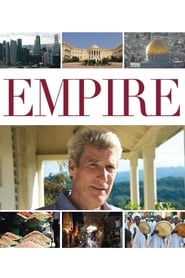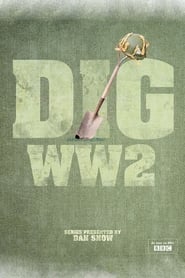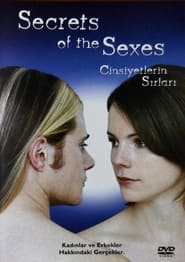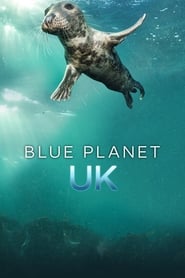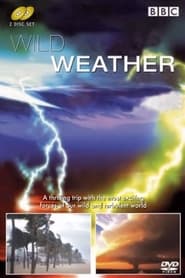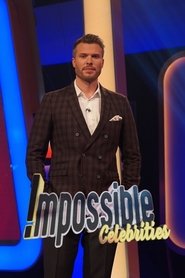Bbc One TV Series - Page 84
-
In My Own Words
2024
In My Own Words
2024
Get up close to artists, writers, actors, comedians and poets – and discover both what fires their imaginations and the forces that have shaped their extraordinary lives. -
Patrick Kielty Almost Live
1999
Patrick Kielty presents a series of comedy, chat and music with celebrity guests. -
Q.E.D
1982
star 6Q.E.D. (quod erat demonstrandum, Latin for "that which was to be demonstrated") was the name of a series of BBC popular science documentary films which aired in the United Kingdom from 1982 to 1999. Running in a half-hour peak-time slot on the BBC's primary mass-audience channel BBC1, the series had a more populist and general interest agenda than the long-running Horizon series which aired on the more specialist channel BBC2. Horizon could often be difficult for a scientific novice, requiring a modicum of background knowledge beyond the reaches of many viewers, so Q.E.D. was a more approachable way of introducing scientific stories. -
The Mad Death
1983
star 6A French visitor to Scotland smuggles her cat into the country, sparking a terrifying outbreak of rabies which threatens to engulf an entire community. -
Late Night Story
1978
Late Night Story
1978
Late night bedtime stories. Tom Baker reads a series of macabre stories about childhood (season 1), and John Mills reads war stories (season 2). -
The Treasure Hunters
2014
star 10From pirates' hoards and shipwrecked booty to dazzling gems to precious metals, Ellie Harrison and Dallas Campbell journey to the far corners of the globe in search of some of the most extraordinary and elusive gems and precious metals. -
The Human Face
2001
star 6.8John Cleese presents a four-part exploration of the complexities of the human face, attempting to unravel its secrets and understand its details. -
Empire
2012
star 6.2Empire is a major five-part series presented by Jeremy Paxman. It tells the story of the British Empire in a new way, tracing not only the rise and fall of the empire but also the complex effects of the empire on the modern world – political, technological and social – and on Britain. -
Dig WW2 with Dan Snow
2012
star 10Dan Snow joins military archaelogists as they investigate the former battlegrounds of the Second World War, uncovering little-known stories through excavations and dives across Europe -
Secrets of the Sexes
2005
Secrets of the Sexes
2005
Are men and women's brains wired differently? A new BBC One series delves into our minds to find out how we think and fall in love. -
Fee Fi Fo Yum
2010
Fee Fi Fo Yum
2010
Fee Fi Fo Yum is a British children's television game show presented by Les Dennis. Two teams of children compete in a series of challenges on the dinner table of Brian the Giant. The losing team is then eaten by the giant. It was first aired in 2010 on the CBBC Channel. -
Resort to Murder
1995
Resort to Murder
1995
-
The Dream Lands
0000
The Dream Lands
0000
It’s 2039 and temperatures are soaring, seas are rising, and the political climate is equally as menacing. Chance is living a life of crime just to get by, when her community is singled out for a government rejuvenation scheme, promising to bring her coastal town back to life. But when Chance falls in love with Franky, a girl with ties to the establishment, she and those closest to her begin to realize that all may not be as it seems. -
Gold Fever
2000
Gold Fever
2000
Gold Fever was the name of a BBC documentary, shown in August 2000, which followed Steve Redgrave and his British rowing coxless four teammates Matthew Pinsent, Tim Foster and James Cracknell in the years leading up to the Sydney Olympics, where Redgrave was looking to claim his fifth consecutive gold medal. The 3-part series included video diaries recording the highs and lows in the quest for gold. Among these were Redgrave being diagnosed with diabetes, and Foster possibly losing his spot on the team after injuring his hand punching a window at a party, and later undergoing back surgery that required additional months of recovery time. Coach Jurgen Grobler was also featured in the programme. A follow-up documentary programme entitled The Rowers Return was produced in the aftermath of the Sydney Olympics. The title was part-reference to a fictional public house, The Rovers Return, a venue in the long-running British soap opera Coronation Street. The documentary detailed the crew's return to the UK and completed t -
Blue Planet UK
2019
Blue Planet UK
2019
Celebrating marine life from all corners of the UK as we dive deep to explore the health of our oceans. -
The Secret of Drawing
2005
This four part series, presented by Andrew Graham-Dixon, explores how drawing has shaped our lives. Join him to discover the history of drawing and its relevance to the modern world. -
Peter Crouch Save Our Summer
2020
star 5Peter Crouch, Maya Jama and Alex Horne join forces to bring the biggest names from the worlds of sport, comedy and music back into our lives. -
Impossible Celebrities
2018
star 6A Saturday evening, celebrity version of the quiz show in which contestants must avoid giving the impossible answer. Hosted by Rick Edwards. -
The Artful Dodger
1959
The Artful Dodger
1959
The Artful Dodger was a short-lived black-and-white British sitcom starring Dave Morris and Gretchen Franklin. It ran for one series in 1959. It was written by Frank Roscoe and Dave Morris.


